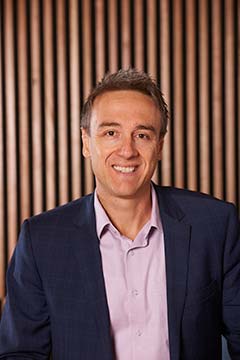So what’s the relevance? I’m getting to that.
Just like you use hashtags to target the right audience, you need to have a target audience focus when you speak to the media.
Sadly, most spokespeople just aim to survive an interview. And too often, a company’s spokesperson or media messages sound like they’re out of a university textbook. You can know everything there is to know about your topic, but if you don’t speak directly to the people who need to hear it, it’s a waste of time and effort.
To really affect great change for your organisation in a media interview or series of media appearances, you need to know who you’re targeting.
Take last week, for example. I was working with a not-for-profit in the homelessness sector. They want to see an overhaul of Victoria’s rental laws to “make renting fair” as promised. At the time of writing this post, there were 20 sitting days left in the Victorian State Parliament for the Labor government to deliver on this.
So when this client gets some press on this topic, there should be only one audience they’re speaking to. Not the reporter, interviewer or journalist sitting in front of them; they’re simply the conduit through which you speak directly to your target audience. In my client’s case, they wanted to speak directly to Premier Daniel Andrews and his government, the people who can do something about it.
Deciding on your target audience is the first step in preparing for your media interview, but it also helps to:
Give you a #focus.
No matter what questions come at you in an interview, if your only focus is get a particular target audience to do something or believe something, you’ll find that it’s hard to be dragged off track.
Influence your #messaging.
It helps you create targeted action-orientated messages. In the case of my client, they needed to speak to Daniel Andrews like he’s the only one listening to that interview, like this:
- “Mr Andrews, we really need you to take renters rights seriously for these reasons.”
- “Premier you need to come good on your election promises and implement changes to protect renters immediately.”
Make your target #audience take notice.
Naming and speaking directly to your target audience gets their attention. It helps them engage and guarantees that your message will reach them. If you decide that your message is for everyone, then you’ll find it hard to craft the message. It won’t hit the right emotional points, and it won’t feel sincere.
#missionaccomplished
When you appear in the media, who are you actually speaking to? Are you speaking to the presenter, reporter, interviewer, the audience or all of the above?
I’ve said it before, and I open all of my media training sessions with it: interviews are not conversations; they are opportunities to achieve something. So use your next one to make sure you get your message across. #knowyouraudience
Do you think social media can help you think differently about your media interviews?
Tell us below in the comments section.
Want to get your staff media-ready?
We provide media training led by experienced journalist Tony Nicholls, who has covered international stories and worked for many of Australia’s major news networks. Find out more about the types of media training we offer here.

Tony Nicholls
Founder and Director of Good Talent Media


Recent Comments